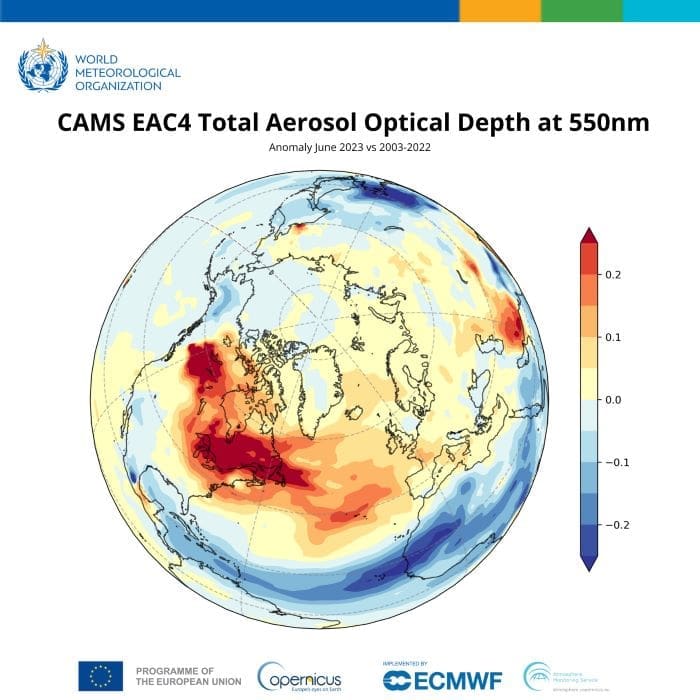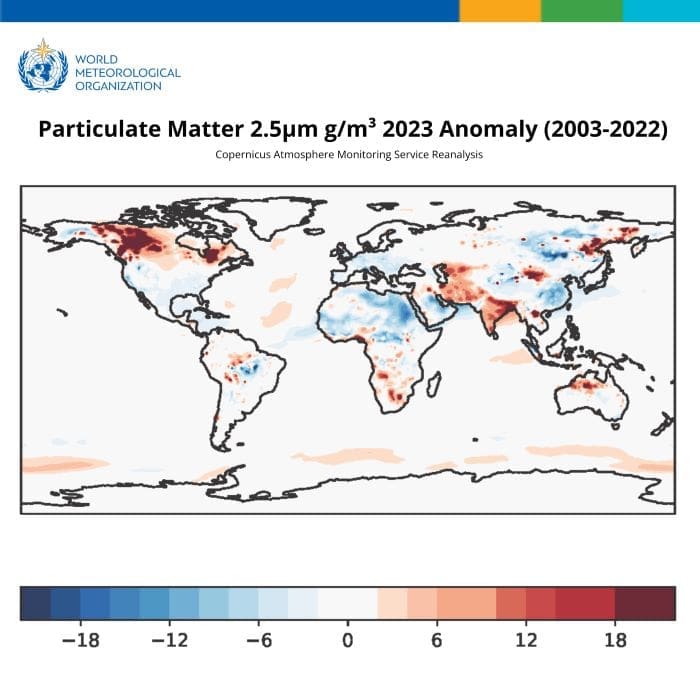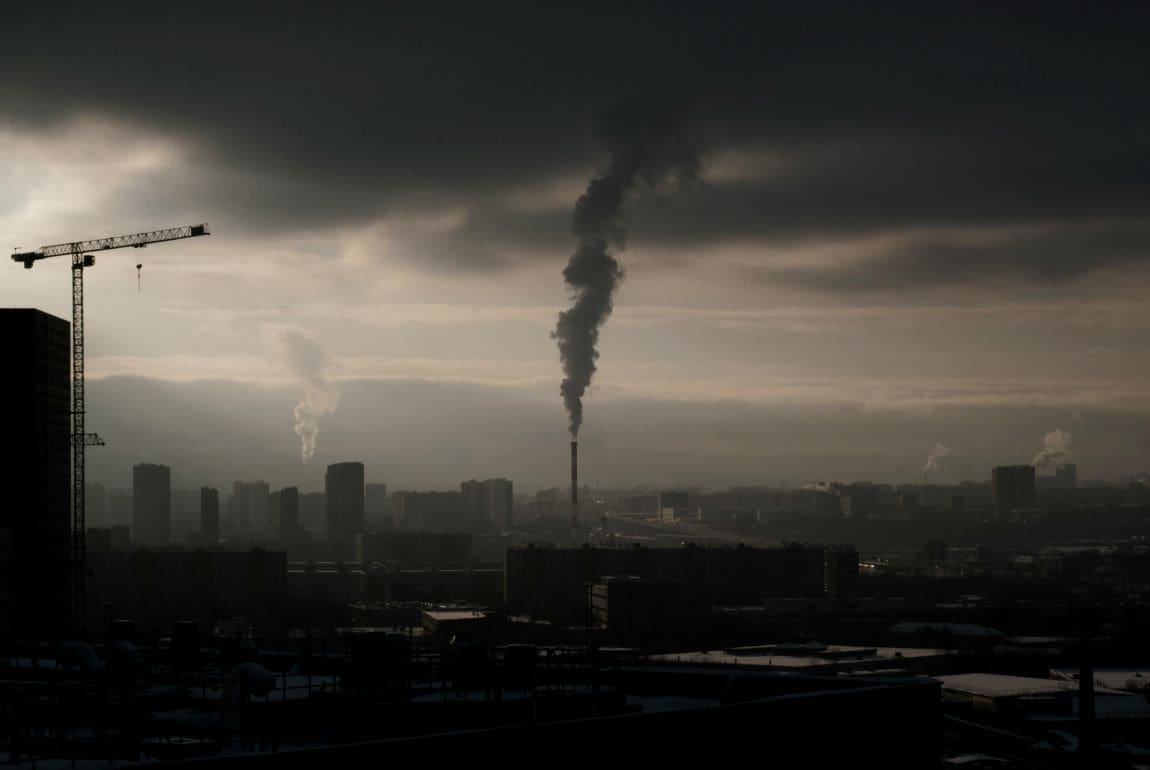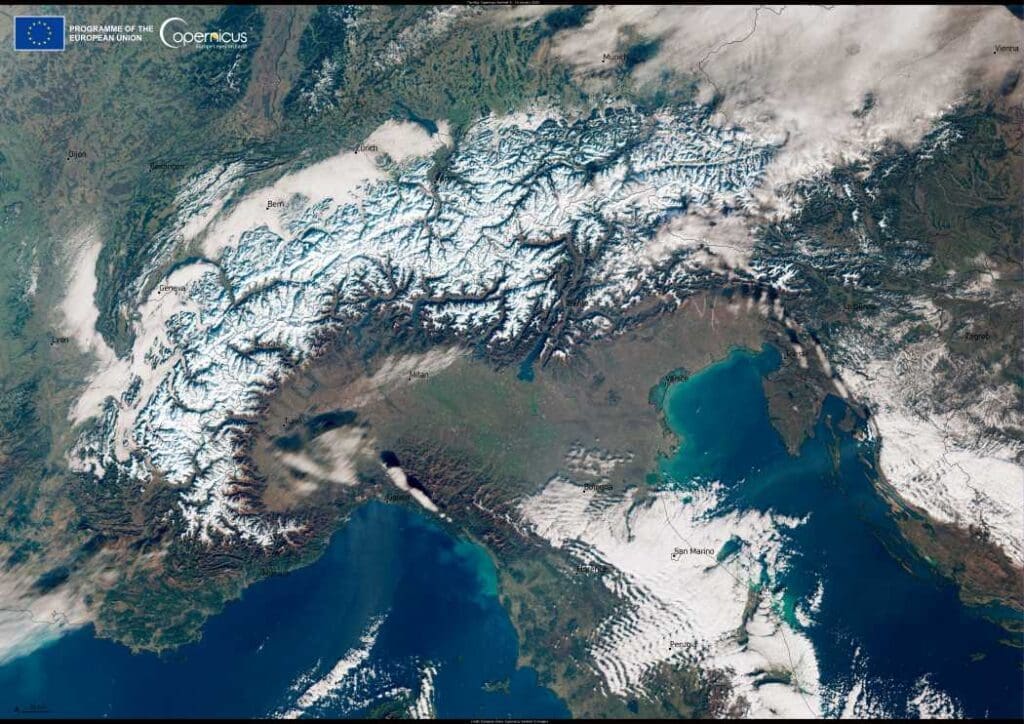A new report from the World Meteorological Organization (WMO) reveals a vicious cycle where climate change, wildfires, and air pollution are interlinked, amplifying their harmful impacts on human health, ecosystems, and agriculture. The WMO Air Quality and Climate Bulletin underscores the urgency of addressing this cycle and highlights the wide-reaching effects of wildfire smoke, which now travels across borders and continents.
Ko Barrett, WMO Deputy-Secretary-General, emphasized the close relationship between climate change and air quality: “Climate change and air quality cannot be treated separately. They go hand-in-hand and must be tackled together. It would be a win-win situation for the health of our planet, its people and our economies, to recognize the inter-relationship and act accordingly.”
Released for Clean Air for Blue Skies Day, on 7 September, the report calls for increased investment in solutions to improve air quality, pointing out that air pollution causes over 4.5 million premature deaths annually. The bulletin also tracks global and regional trends of particulate matter (PM2.5), with 2023 seeing record wildfire-related emissions in North America and continued elevated pollution levels in regions like India.
WMO YT Channel
Wildfires as a growing global threat
Wildfire seasons are becoming more intense and prolonged due to climate change, as heatwaves and droughts create conditions for fires to spread rapidly. The report highlights that in 2023, Canada experienced its worst wildfire season in decades, with total burned areas seven times the 1990–2013 average. Smoke from these fires traveled as far as Europe, compounding air quality issues.
Dr. Lorenzo Labrador a WMO scientific officer from the WMO Global Atmosphere Watch network which compiled the Bulletin stated: “Smoke from wildfires contains a noxious mix of chemicals that affects not only air quality and health, but also damages plants, ecosystems, and crops – and leads to more carbon emissions and so more greenhouse gases in the atmosphere.”
In Chile, wildfires in early 2023 led to severe air pollution, with ozone and PM2.5 levels spiking. The country, already experiencing a decade-long drought, faced an environmental emergency due to these fires, with significant human and environmental costs.

Impacts on agriculture and ecosystems
Beyond direct health hazards, particulate matter (PM2.5) is also impacting agriculture. In regions like Central Africa, India, and China, particulate pollution is reducing crop yields by blocking sunlight and damaging plants. In highly polluted areas, studies have shown a reduction in crop yields of up to 15%.
Agriculture itself contributes to the problem, with practices such as stubble burning and the use of fertilizers releasing particulate matter into the atmosphere. However, the bulletin suggests practical solutions, such as planting trees and shrubs to protect crops while also promoting carbon sequestration and biodiversity.

The WMO bulletin provides a clear call to action: addressing both air pollution and climate change simultaneously is the key to breaking this destructive cycle. As 2024 progresses with similar patterns of heatwaves, droughts, and wildfires, interdisciplinary science and global cooperation are essential to mitigating these threats.
The report also highlights the role of new technologies in monitoring bioaerosols, offering fresh insights into climate change’s impact on biodiversity and ecosystems. By advancing research and policy, a cleaner, healthier future remains within reach.
Source: WMO
Featured image credit: Olga Kovalski | Pexels




